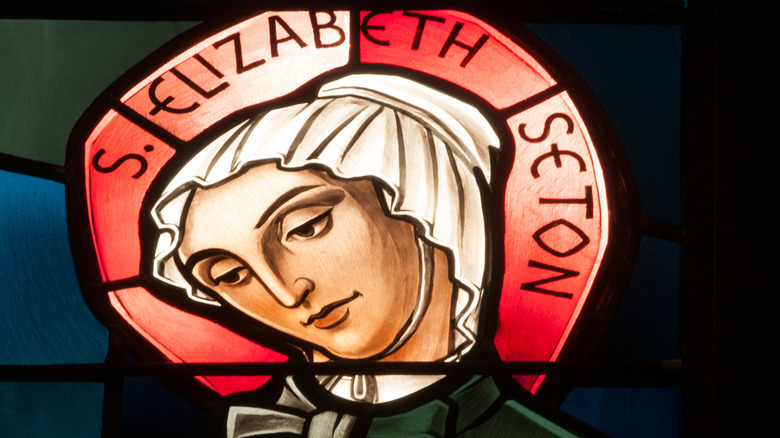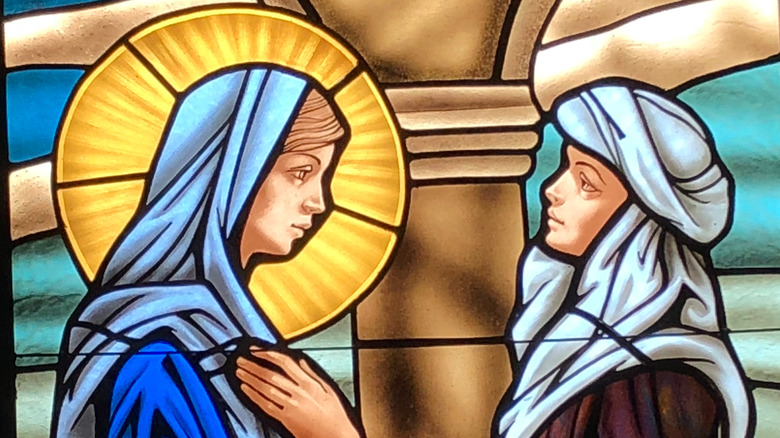The Story Of John The Baptist's Mother In The Bible Explained
In the Bible, Elizabeth is the mother of John the Baptist and a relative of the Virgin Mary. The first time Elizabeth appears in the Good Book, she is described as one of the daughters of Aaron in Luke 1:6: "In the time of Herod king of Judea, there was a priest named Zechariah, who belonged to the priestly division of Abijah, and whose wife Elizabeth was a daughter of Aaron."
Elizabeth and Zechariah were faithful to God and followed all commandments, but still were childless. According to the Bible, the pair was too old to conceive, but God had great plans. When Zechariah was praying in the temple, an angel appeared to him, and he was terrified. "Do not be afraid, Zechariah, for your prayer has been heard. Your wife Elizabeth will bear you a son, and you will name him John," the angel said in Luke 1:13.
It is not the first time an old couple conceives after being visited by an angel in the Bible. Elizabeth's miraculous pregnancy resembles the Book of Genesis story of Sarah and Abraham, who also conceived their first son, Isaac, when they were old, per Bible Gateway.
Elizabeth and Mary were cousins
When Elizabeth was pregnant, she was visited by her first cousin, Mary, who was expecting Jesus and stayed with her for three months. According to the Bible, when Elizabeth heard Mary's greeting, she was filled with the Holy Spirit, and the baby jumped in the womb. Per Luke 1:41, Elizabeth knew the moment was unique and said to Mary: "Blessed are you among women, and blessed is the fruit of your womb."
According to Britannica, the first representations of this visit featured two women greeting each other. In the 15h Century, devotion to the Virgin Mary increased, and since then, the paintings often show Elizabeth kneeling before Mary.
The last time Elizabeth is mentioned in the Bible is in Luke 1 during her baby's circumcision, eight days after he was born. According to the Bible, people wanted to name him after his father, but she refused: "No. He is to be called John."

